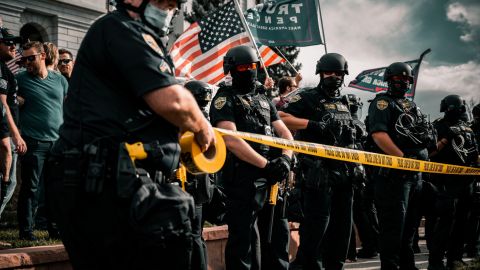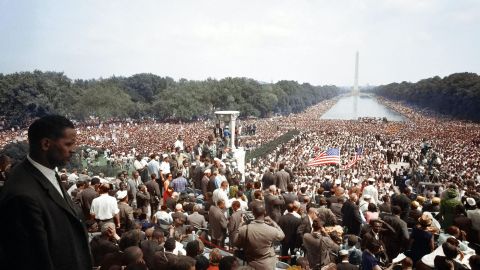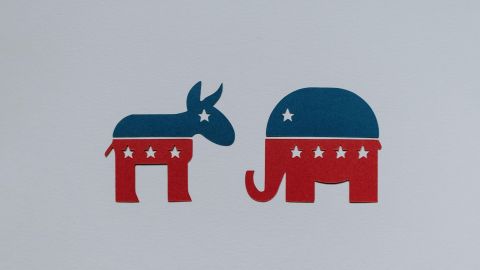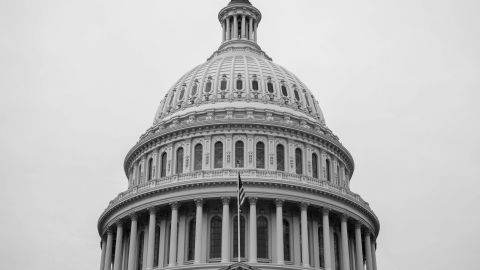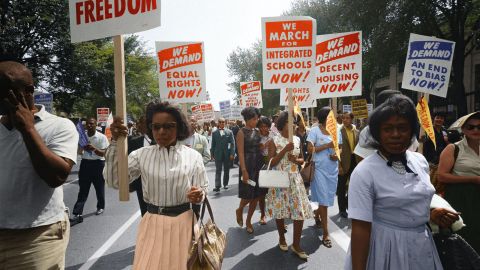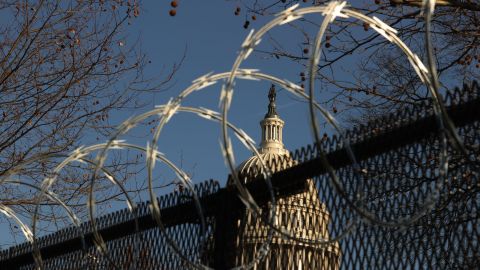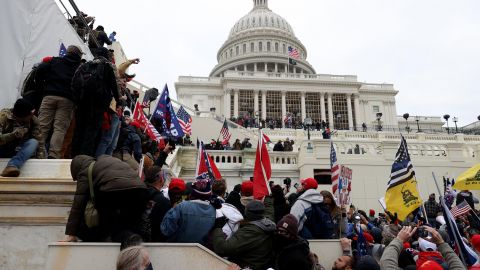Experts discuss how the American Revolution united the states against the common enemy of the British monarchy, versus how Abraham Lincoln’s election and the Civil War brought our democracy and the nation to its brink. “They [the South] didn’t claim that Lincoln hadn’t really won and had stolen the votes,” says Eric Foner. “They just said, we don’t accept this.”
(no audio)
(no audio)
- I think at the beginning when you look
at when Democratic regimes were first established,
they were very strange things
for the people who were living under them.
Because before you had these democratic regimes,
generally, people lived under monarchies.
And the idea was that the monarch himself
or herself really incarnated the entire nation,
it brought unity to the entire nation,
was not the monarch of one faction or another,
but was the monarch of all the people.
And then when you have a democratic regime,
suddenly you have elections.
And suddenly you have people having to accept
that the people who are ruling
might be not the people they voted for,
might be somebody else.
And that's a very strange thing to have to get used to.
The idea that you should be loyal
to somebody whom you voted against,
who you didn't want as the ruler.
So right from the beginning,
there's a lot of instability built into democracy
for that reason.
- Our revolution was really unique.
The founders of our government said,
"No more kings, no monarchy, no royal families.
We're gonna treat every man."
And it was every man, not women, not Blacks,
not natives yet, but they said,
"We're gonna treat everybody
as if they're politically equal,
as if men have equality in the political community."
And it was revolutionary.
- From the very beginning, the infant nation,
as Washington called it, was in peril.
The North and the South were fighting.
As soon as we stopped fighting
against a common cause, which was the British,
everyone then divided into their own interests.
Our survival always depended upon some sort
of collegiality, agreement, discussion
and union.
A understanding that the good
of the country is more important than regional differences.
The revolution was successful in part
because people put aside their regional differences
and focused on a common enemy, a common goal,
which was the revolution, it was the British Empire,
it was becoming an independent country.
- The Declaration of Independence
and the Constitution do not include the word democracy.
And most of the founders were suspicious
of democracy as they understood it.
So they put into the Constitution barriers
between popular upsurges, popular enthusiasms,
and people in public office.
The President is not elected directly by the people,
he is elected by an electoral college.
The Senate at that time was elected by state legislatures.
The Supreme Court is appointed and serves for life.
All of these are insulated
from popular pressure, popular enthusiasm.
The House of Representatives was to be the democratic body.
And indeed, the most democratic feature
of the Constitution was a provision that,
in elections to the House of Representatives,
states that had more than one qualification
for voting would have to use the most expansive definition
of qualification.
In other words, there were some states where you had
to possess a certain amount
of property to vote, let's say, for the legislature,
and more property to vote for the governor.
But the Constitution, well,
for the House of Representatives,
it's the lower qualification that would be imposed.
But that's the extent of political democracy
in the Constitution.
The fact that there was this embrace
of democracy did not mean
that everybody accepted its functioning.
I mean, the most famous example would be the election
of Abraham Lincoln in 1860.
I mean now, Southerners didn't claim
that this was a fraud.
They didn't claim that Lincoln hadn't really won
and had stolen the votes.
No, they just said, "We don't accept this.
Lincoln is opposed to slavery.
We are based on slavery, our states.
We are not gonna stick around and accept the notion
that we are to be governed by a president who is committed,
in the long run, to getting rid of slavery."
And so they left, 11 states seceded,
tried to form the Confederacy, their own nation.
Of course, that was a complete repudiation of democracy,
which is what Lincoln said in the secession crisis.
He said, "I could give in to all their demands
but what would that mean for democracy?"
If you run a campaign on the basis of stopping the expansion
of slavery and then people threaten to leave
and you give up the principle that you were running on,
then there's no democracy in the country.
- The efforts to bring slavery to an end
in the early United States ultimately resulted
in the Civil War.
But even war didn't necessarily mean that slavery would come
to a legal end.
That would take federal legislative action.
Those federal legislative actions began in the later months
of the war and were manifest in the 13th Amendment in 1865,
which historians today see
as the first positive federal law outlawing slavery
and moving the nation toward a more perfect union.
Ending slavery
by federal mandate did not necessarily mean fair treatment
for those who had long been subjected to slavery.
That would take two more amendments
to the federal Constitution.
Taking together the 13th, the 14th, and the 15th,
were the first three positive amendments
to the United States Constitution,
which sounded the death now for slavery
and were intended to positively move the country
along a path toward a more perfect union.


